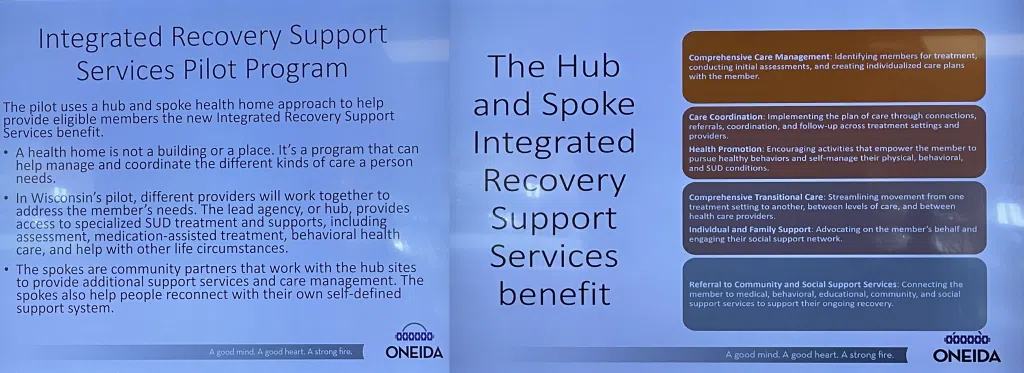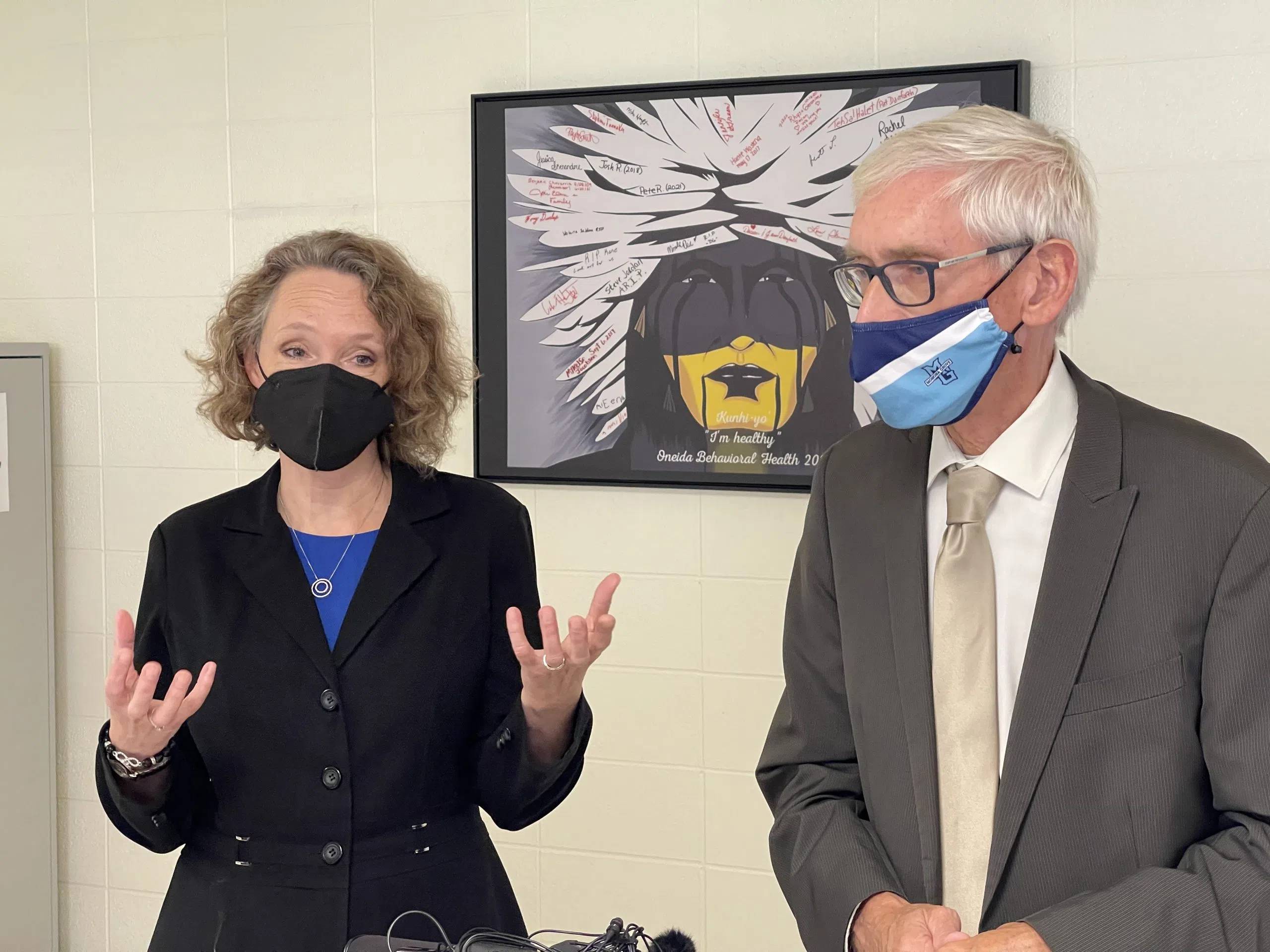GREEN BAY, WI (WTAQ) – Governor Tony Evers stopped at the Oneida Behavioral Health Center on Tuesday to check out the new ‘hub and spoke’ pilot program, which aims to provide better care to Wisconsinites with substance use disorders.
“This is exceedingly important. Everybody knows this, and the pandemic has been difficult for everybody…Because of the stress, mentally and behaviorally, that the pandemic has put on us, it’s been difficult for everybody in the state. It has obviously increased types of behavior that we’re trying to take care of here,” Evers said. “It’s a perfect time and we’re giving these sites plenty of time over a couple years to really try things out and see what works for the best.”
“[It] really has such a great complement of all of the services that people who are in recovery for substance use disorder really need,” said Department of Health Services Secretary-Designee, Karen Timberlake. “That ability to connect both substance abuse needs, mental health needs, physical health care needs, and then all of the other family and social supports.”
The Oneida Behavioral Health Center is one of three sites in the state working through the pilot program.
“We’ll be able to share stories on similar efforts going on in Minocqua, what’s successful there, in Milwaukee, and here,” Evers said. “Having these three sites and pretty separate parts of the state, with different groups of people that are being helped, I think we will come up with some really good ideas for what the plan should look like going forward.”

Evers and Timberlake received a tour of the facility and a presentation on how things are going so far. As the program is evaluated, the addition of staff and assistants could prove to be a key factor.
“Making sure that therapists can be therapists, but we’re also creating more capacity within the existing system,” Timberlake said. “We’d all love for there to be an influx of new people who want to do this work and hopefully by bringing visibility to the program, we’re going to encourage others to look at behavioral health as a career.”
“This is a top priority for us, and we want to make sure that we help out. Maybe there’s ways in the future to help or the state can incentivize people going into the these professions too,” Evers added.
In 2020, the center served 419 people who were dealing with substance use disorders. In 2021, they’ve served 475.



